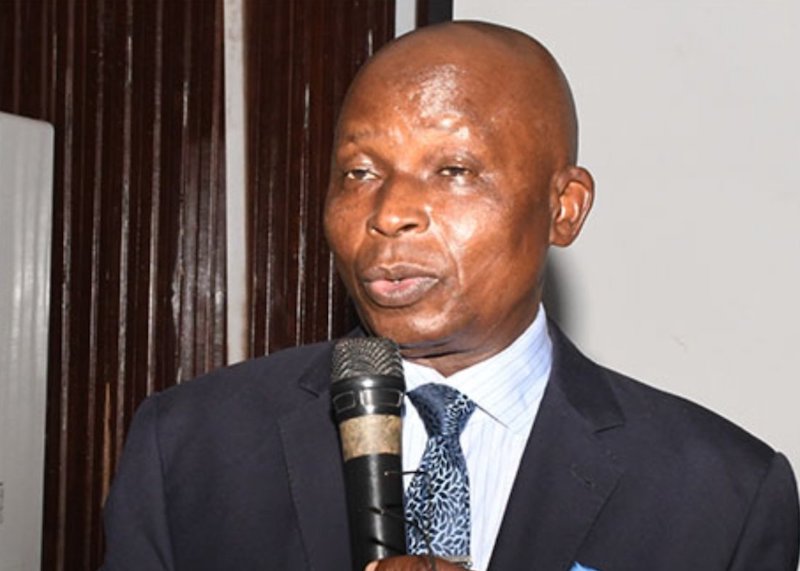#TrackNigeria The Acting Chairman, Economic and Financial Crimes Commission, EFCC, Ibrahim Magu has called for the strengthening of collaborations among Africa States, in order to check illicit financial flows, with the aim of winning the fight against corruption on the continent.
“The intricate webs of illicit financial flows developed by organized criminal groups that have deprived African economies of crucial resources for development, have made the need for effective collaboration among African States in the fight against corruption more imperative,” he said.
Magu, who was represented by the Secretary to the Commission, Olanipekun Olukoyede, gave the charge at the commencement of a five-day Strategic Management Training Workshop for Anti-Corruption Agencies in Commonwealth Africa, organized by the EFCC in collaboration with the Commonwealth Africa Anti-Corruption Centre, CAACC, at the EFCC Academy, Karu, Abuja on Monday.
He emphasized the importance of capacity building for officers of law enforcement agencies in order to equip them with the necessary skills to tackle new and emerging vices and financial crimes.
“The task of fighting corruption is not only Herculean, but sophisticated, as organized criminal gangs are daily devising new and sophisticated means of perpetrating fraud and other criminal activities,” he said, stressing that for anti-corruption agencies to be successful in their mission, they must be ahead of such fraudsters and criminals.
While emphasising on the importance of the workshop, he noted that the programme is “designed to improve the capacity of Anti-corruption Agencies in [the] Commonwealth in order to deliver the mandate of fighting the corruption scourge militating against our collective developmental efforts”.
Magu added that it was expected to yield positive results in the fight against corruption, resulting in a strategic plan to strengthen anti-corruption agencies across Africa.
He warned that not charting a new course to fight corruption will imply resigning to “the fate of doom, which a free reign of corruption holds for the future generation”.
“It has become increasingly imperative that we sit down and talk about our common problem of corruption and chart a course out of its grip,” he said, adding that it was important for anti-graft agencies to up their games considering the changing tactics of the corrupt to “steal, loot, cheat and conceal the proceeds of their crimes”.
The Interim Adviser and Head, Public Sector Governance Unit, Commonwealth Secretariat, Roger Koranteng, also noted the importance of strengthening collaborations among African countries in the fight against corruption.
“Such collaboration will help achieve meaningful and long lasting effort to combat corruption and to enhance good governance on the continent,” he said, as he counselled Anti-Corruption Agencies in Commonwealth Africa to collaborate with CAACC which has a regional reach to mount programmes to benefit Africa Anti Corruption Agencies.
On his part, the Chief Commissioner, Public Complaints Commission, Chile Igbawua noted that the task of fighting corruption in whatever form grows more complicated by the day, as criminals also develop new strategies.
“For us to be successful in this fight, collaboration with other anti-corruption agencies is important as it will yield results, and for us to be successful in this task, there must be cooperation either voluntarily or compulsorily,” he said.
While delivering his paper, titled, “Strategy, Structure and Performance”, Founder, Centre for Value in Leadership, Patrick Utomi, stressed that “the success of any organization is linked to its corporate culture and staff adherence to core values and in order to achieve long term goals is to commit to something.”
He added that most organizations fail because they try to serve everything whereas there is the need to strategize. He thus advised that leaders should apply leadership influence instead of assertion of power.
Highlighting fear of conflict, lack of commitment, avoidance of accountability, not paying attention to results, as reasons why organizations fail, he charged the EFCC on the need to “make it impossible for people to steal government funds by employing the use of artificial intelligence and other emerging technologies.”
Earlier in her welcome address, the acting Commandant, EFCC Academy, Prof. Lami Hamalai called for support amongst the anti-corruption agencies and for the need to restrategize in combating corruption.
“There is need for new strategy which should focus on preventive measures to endure that funds meant for development and social policies are utilized accordingly,” she said.
The workshop, which will come to an end of August 23, 2019, follows the EFCC’s agreement with the Botswana-based CAACC to host and co-facilitate one of the six trainings of the body in 2019, in order to avail African anti-corruption agencies, especially those of the 19-member country organization, the opportunity to gain from the EFCC’s wealth of experience in executing the anti-corruption fight in Nigeria.
Representatives at the works are from South Africa, Botswana, Lesotho, Kenya, Mozambique, Mauritius, Malawi and Nigeria.
It is remarkable that the CAACC usually hosts its trainings, workshops and courses in Botswana, but for the first time, it is jointly hosting its training in Nigeria in collaboration with the EFCC.



